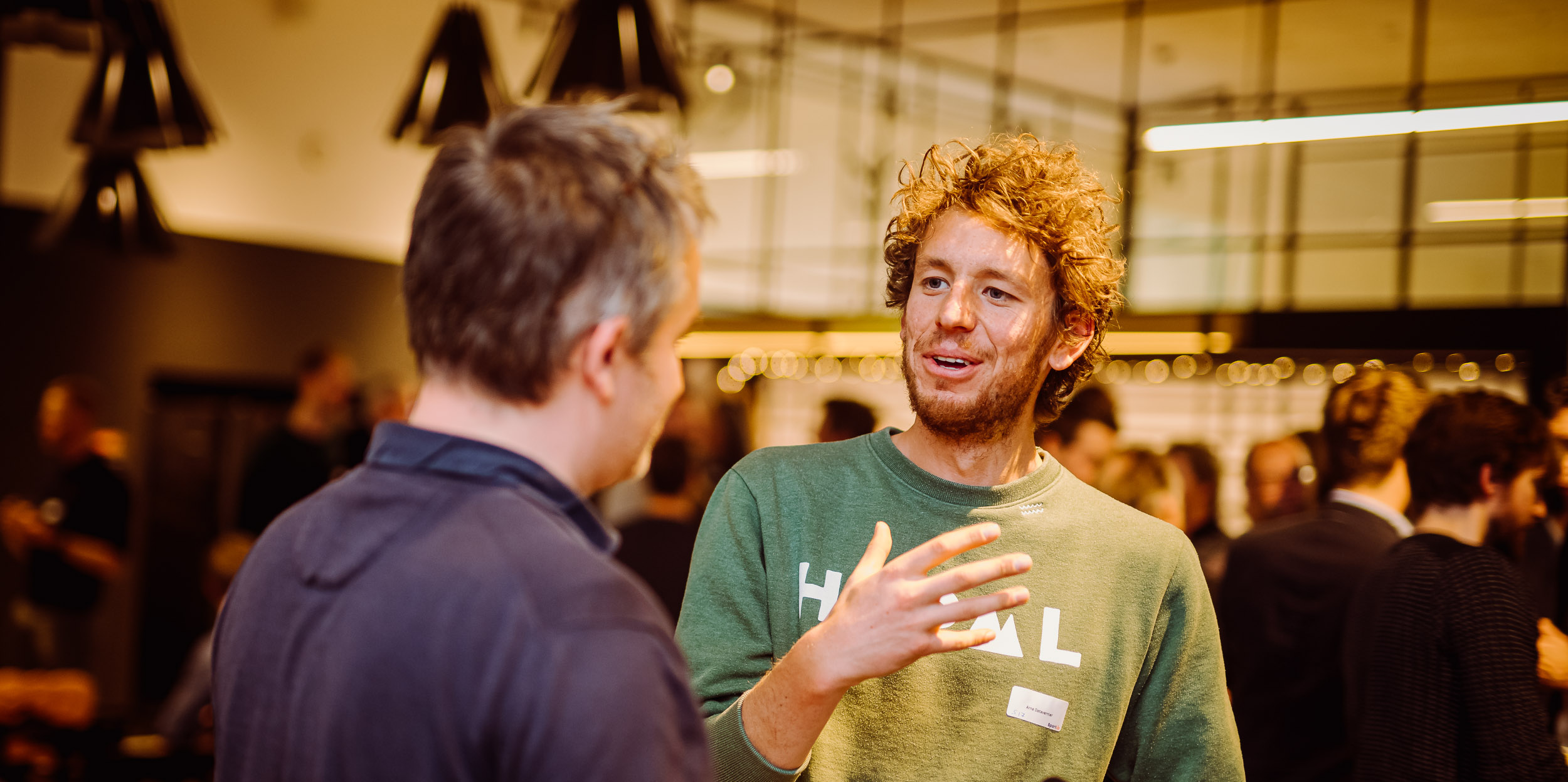
Why Every Sport Startup Founder Needs To Be a Part-Time Networker
15th Jul 2020
Have you ever heard the saying: “Your network is your net worth”?
Ever since startup advisor Porter Gale coined this saying in 2013 by writing a book with this title, it’s been used countless times by startup mentors advising their ambitious mentees.
Every startup founder has to build a network if they want to succeed. When you start your startup journey, you have nothing and nobody. (Almost) no one knows your name and you have nothing to build upon.
Even when you’re already a step further and started building and selling your product, it’s very hard to figure it all out on your own.
It’s a clear fact: business is not about what you know, it’s about who you know.
In this post, SportUp Program Manager Kristof De Mey is going to show you why networking is a key skill ànd activity to build the next sport startup success story… and how to approach it the right way.
Different startups, different phases and different needs.
Kristof De Mey: “Every startup has specific challenges and moves through different phases, with every phase presenting different needs. And as one can’t possibly have all the answers and knowledge, that’s exactly why having the right connections is so important.”
There are a few aspects of starting and growing a startup where knowing the right people comes in handy.
Getting the technological breakthrough for your idea
In the sports scene, people often come up with ideas that require technology as the cornerstone of the exact service they want to deliver. Tech that could be found in other industries, or maybe does not even exist yet. The right expert could lead you to the tech you need, or might know who to reach out to, to develop that tech.
Entering a new industry or segment of clients
When researching the ‘problem space’ at the start of every startup innovation trajectory, you aim to identify your ideal customer. Should your ideal customer consist of people that are outside your circle, you’ll need the right introductions. Many big corporates for example, rely on business relationships that were built over the years, so being enthusiastic and driven might not suffice to get them to become a client of you - the right entry might ease your path.
Discovering business and project opportunities
The ones that buy your solution, are those that have a problem and a need. Usually you’ll start with reaching out to potential clients. Having multiple ambassadors to direct business to you is like having free lead generation. Networking can even show as political lobbying. Organisations like the European Platform for Sport Innovation (EPSI) have a clear view on project opportunities that might just need your solution. While you’re doing your thing, the right connection might be vouching for you in conversations outside your scope.
Finding the right talent for your company
Networking can introduce you to new talent. You may need a programmer to build your website or a sales manager to start building your sales team. Most of the time, the best talent isn’t acquired through scouring the job websites.
Finding peer support
Sometimes you just need someone who can critically scan your business. Making friends with people who understand where you’re coming from can make you see problems in a different way. They may suggest solutions you have never considered before, or they could simply provide you with a friendly ear.
Knowing this, who exactly should you add to your network?
9 Types of people to have in your network
Let’s start off by making clear that it’s more important to have a base group of well chosen connections, and that you reach out and network according to the need you have at any specific time.
Still, having a diverse network is important. These are the 9 types of people we recommend you to connect with:
- Sports tech and innovation influencers: those people that are always sharing the latest news about the industry, or who are experts in their subfield.
- Leaders or representatives of the main hubs within the region or country that are relevant for you. In Belgium we (SportUp) are the hub, In the Netherlands you’ll find Sportinnovator and the Sports & Technology network, Australia hosts the Australian Sports Technologies Network, etcetera.
- Investors: even if investors don’t invest in you, they can still lead you on, advise you or point you in the right direction.
- Partners and organisers of ‘startup challenges’, like the organisers of the Euroleague Basketball FanXP challenge, or Uefa’s Innovation Hub.
- Academic institutions and universities: being connected to leading academics, you can find or contribute to innovation and R&D, discover project opportunities, and use its credibility to open other doors
- Founders of complementary companies, corporates, startups and scaleups. You might not only be able to build business in both directions, but also widen up your possibilities and even receive mentoring.
- Representatives working for local governmental organisations, in specific areas. Sport Vlaanderen is the governmental body concerning sports in Flanders, concerning economy and (international) commerce there’s Vlaio, Flanders Investment & Trade and Agoria.
- Media relations: public relations is still important, and having the right connections to journalists, bloggers and industry influencers, opens up opportunities for (free) marketing.
- Ambassadors: the people that already love your product and (want to) communicate about it. These might be clients, but can also be online influencers, innovators and early adopters, and even the followers on your social media.
So now that you know who you should connect with, you'll probably want to know how, right? Kristof has 14 networking insider tips in his next article. Read it, and then take your first step and start connecting with other sports tech enthousiasts here in the biggest Sportstech meetup group in Belgium. Say hi when you're in!